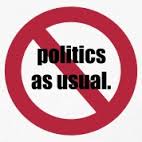Last night at the township BOC meeting one colleague fellow Commissioner Ryan Conrad asserted that participating in the TIF is not “corporate welfare”.
It’s important residents understand where Commissioners stand on issues. This issue in particular outlines stark philosophical differences and approaches to land development, development subsidies and who should shoulder the costs of impacts both immediate and projected. Therefore it’s crucial residents understand very clearly without semantic interference where each Commissioner stands. Every four years we receive a job review in the form of an election. Therefore, I would be remiss if I didn’t clearly state that I fundamentally disagree with Mr. Conrads assertion in the strongest of terms.
“Corporate welfare” in this instance has been used as a rallying cry for residents who by and large support the project but without the 20 year tax forfeiture. Some institutional supporters have tried to use semantics and word games to insist this doesn’t qualify as corporate welfare or that the townships decision on participating in the TIF could somehow derail the project. This is a disingenuous game and unfair to residents.
The facts remain:
1. If Lower Macungie participates in the TIF 50% of the developers incremental taxes will be siphoned away from the township.
2. The money instead is siphoned back to the developer and other private interests through LCIDA where it would be used to pay back construction bonds for basic improvements that are required of all developers seeking to do business in the township.
3. With this TIF, tax money is forfeited and instead used to pay for what otherwise would be the responsibility of the developer. In other words the normal costs of doing business. Infrastructure costs every other developer has to pay for themselves. In this case it is the bare minimum infrastructure improvements required by Penndot to build a shopping center of this magnitude.
4. The bottom line is that this mechanism pads the developers bottom line. TIF will increase profits of private business interests and decrease the return received by taxpayers. It is preferential treatment for one chosen business. It is a subsidy of both of the sellers flawed piece of land and of the buyer. It is a distortion of the market that will hurt other local businesses.
5. While you can argue that creating the TIF district could pull the plug on the entire TIF, (including the school district) the townships participation (remember they are 2 separate ordinances and two separate votes) is purely symbolic and will have absolutely zero impact on the developer building the project. In other words, with or without the township participating in the TIF this shopping center is coming. This is a certainty. I can’t be anymore clear about that. There have been attempts to blur this line.
Lower Macungie’s participation in the TIF is giving one developer receiving special treatment for purely symbolic reasons. We are a relatively affluent township with a healthy and robust economic climate, therefore TIF is unnecessary and borderline egregious to even consider.
A vote for the TIF is a vote to take money out of the pocket of Lower Macungie residents and funnel it to private interests over a 20 year period. This is compounded by the fact some Commissioners seated on this board just recently voted to raise taxes.
If any Commissioner believes this is the right thing to do, then they should stand by that decision and not try to rationalize it by making statements like “The developer still pays 100% of it’s taxes” while ignoring the fact that half those taxes are siphoned away from the township back to the developer by padding their bottom line through the Lehigh County Industrial Authority. The other misleading notion I’ve heard is no “corporation is receiving a direct subsidy. Last time I checked TCH development and The Goldenberg group are in this to make money. They are indeed both private businesses who will benefit from TIF subsidy in terms of increased profits. No, the “nameplates” Costco and Target aren’t the direct beneficiaries but they are indirect beneficiaries. No matter how to slice it private interests are the gov’t sponsored winners in this shell game and taxpayers and other local businesses are the losers.

